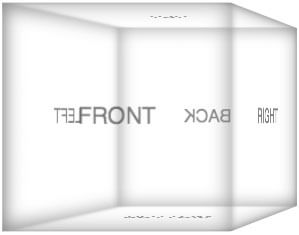Recursively Delete Files from Command Line
I'm one of those people who can't stand a messy laptop; I don't keep around files I don't need and I refuse to install apps unless I absolutely need them. Unfortunately Mac OS X and Windows generate files whenever they like, like .DS_Store and Thumbs.db. Sure they serve their purpose but that doesn't mean the clutter doesn't annoy me.
If you want to recursively find delete files you don't want, there's a simple way to do that:
find . -name '.DS_Store' -type f -delete
You can use * as a wildcard too:
find . -name '*.zip' -type f -delete
Of course my cleanup only lasts a short time, but hey -- you can use this command for more intelligent purposes!
![CSS @supports]()
Feature detection via JavaScript is a client side best practice and for all the right reasons, but unfortunately that same functionality hasn't been available within CSS. What we end up doing is repeating the same properties multiple times with each browser prefix. Yuck. Another thing we...
![Create a CSS Cube]()
CSS cubes really showcase what CSS has become over the years, evolving from simple color and dimension directives to a language capable of creating deep, creative visuals. Add animation and you've got something really neat. Unfortunately each CSS cube tutorial I've read is a bit...
![Drag and Drop Z-Index Stacking]()
![MooTools Star Ratings with MooStarRating]()
I've said it over and over but I'll say it again: JavaScript's main role in web applications is to enhance otherwise boring, static functionality provided by the browser. One perfect example of this is the Javascript/AJAX-powered star rating systems that have become popular over the...





Interestingly. I only knew about
-execandxargs.I use Asepsis for
.DS_Storefiles: http://asepsis.binaryage.com/Just to mention that the order of the -delete flag is very important. Putting -delete flag first will make find try to delete everything below the specified starting point.
If you’re on Windows, the following will work the same:
Using
-inameinstead of-namewill ignore case.